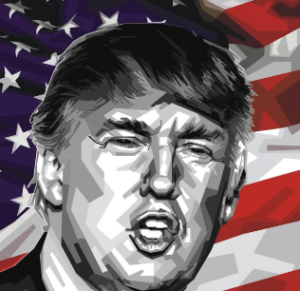$DAX $EURUSD $STOXX50
#TrumpTariffs #USElection #EuropeExports #TradeWar #USMarket #EUEconomy #GlobalTrade #TariffPolicy #TrumpAdministration #TradeDisputes #EconomicImpact #ExportIndustry
Europe is facing a significant economic challenge following Donald Trump’s election victory in the United States. European Union officials are working to assess how Trump’s protectionist policies, particularly the likelihood of tariffs on European exports, might impact the region’s economy. Trump has remained critical of international trade deals throughout his campaign, and his intentions to bolster U.S. manufacturing through tariffs pose a real threat to key European industries, such as car manufacturers and agricultural exports. If these tariffs come into play, the European economy — which is already striving to rebound from sluggish growth and the impact of Brexit uncertainty — could experience further strain, notably in countries like Germany, where manufacturing is a cornerstone of its economic output.
European stocks, like the $DAX and $STOXX50, are likely to see downside pressure as investors brace for potential new trade barriers between Europe and its largest trade partner. Specific sectors— such as the automotive industry— are particularly vulnerable. Companies like BMW, Volkswagen, and Daimler, all heavily reliant on U.S. sales for a significant portion of their revenue, are at greater risk if retaliatory tariffs escalate. In financial markets, the continued uncertainty could translate into greater volatility for the euro, as seen in the $EURUSD pair. When risk is heightened, the euro tends to weaken against the U.S. dollar due to concerns over economic resilience amidst global trade realignments.
Should tariffs be imposed, retaliation from the EU appears inevitable, further escalating a trade war that risks creating ripples across global markets. There is speculation that the EU may try to negotiate exemptions with the incoming administration or engage with U.S. policymakers to lessen the impact. However, if negotiations break down, Europe could also target specific American goods or industries in response to protect its own economic interests. Such retaliatory measures could, in turn, negatively impact U.S. companies with significant European exposure, such as automakers like Ford and General Motors or tech giants whose supply chains are interdependent with European markets.
If a full-scale trade war ensues, the economic costs could be widespread. Higher tariffs may result in subdued business investments as companies delay major capital expenditures amidst rising uncertainty and operating costs. Consumers on both sides of the Atlantic could also bear the brunt through inflated prices of goods, ranging from automobiles to electronics. Stock markets, globally, would likely respond negatively, with a greater flight toward safe-haven assets like gold and U.S. treasury bonds, while equities and currencies, particularly the euro and the British pound, could suffer from reduced market confidence. For Europe, avoiding substantial tariffs through delicate diplomacy or finding alternative strategies to maintain trade relations will be paramount in safeguarding its economic stability over the term of the Trump administration.










Comments are closed.